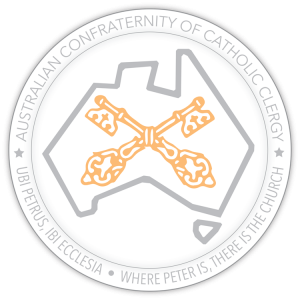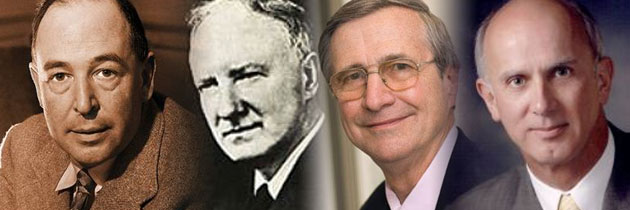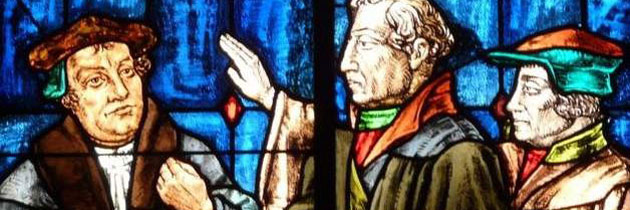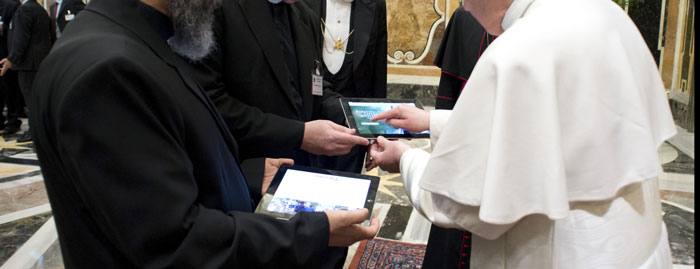C. S. Lewis
Clive Staples Lewis (1898-1963) was born in Northern Ireland, he was educated in Oxford and remained there throughout most of his academic career. He was a professor at Magdalen College. He is described as novelist, academic, medievalist, literary critic, essayist, lay theologian and Christian apologist.
He is best known for his Chronicles of Narnia but is often forgotten as one of the prominant Christian apologists of the twentieth century. His works Miracles, The Problem of Pain, The Abolition of Man, God in the Dock, The Weight of Glory and Other Addresses, are amongst some of the classic works of apologetics in the English language.
The greatest work, however, which was one of the best selling books of the last century is Mere Christianity in which he presents the case for the truth of the basic tenets of Christianity accepted by all Christians. His science fiction novels have an apologetic quality about them as does his Screwtape Letters. Even the Narnia stories provide us with an allegorical rationale for essential Christian truths in another world.
Lewis was not a Catholic but had many Catholic friends especially amongst the so-called ‘Inklings’, a group which included the Catholic writer J.R.R. Tolkien (1892-1973AD). It is clear that his writings were very sympathetic to Catholicism (for instance he even believed in the reality of purgatory) and some of his closest associates at the end of his life believed that he would have become a Catholic. Whatever the speculation so much of what he wrote is perfectly compatible with the Catholic faith and he can therefore without scruple be a point of reference for a Catholic apologist.
Lewis’ apologetics is particularly interesting because he himself travelled the road of doubt before finding faith. He was an atheist who was won over by the innate apologetic truth of the Christian faith. The account of his conversion is captured in a biographical/apologetic work Surprised by Joy. He was greatly influenced by Chesterton’s The Everlasting Man. He writes about his conversion:
You must picture me alone in that room in Magdalen, night after night, feeling, whenever my mind lifted even for a second from my work, the steady, unrelenting approach of Him whom I so earnestly desired not to meet. That which I greatly feared had at last come upon me. In the Trinity Term of 1929 I gave in, and admitted that God was God, and knelt and prayed: perhaps, that night, the most dejected and reluctant convert in all England. (Surprised by Joy)
His approach to apologetics is therefore always of one who knows the other side. He is known as the ‘apostle of the sceptics’ both in the choice of his apologetic subjects but also in the sympathetic manner with which he treats doubters. He has the gift to be able to see a clear path through the most overgrown and dense territory. We witness flashes of insight and brilliance in his writing that have been rarely matched. As a writer of fiction he has the gift to look at the world with wonder and to see things not by convention but as they are in all their strangeness and uniqueness.
Here is Lewis’ most famous apologetic passage from Mere Christianity (book 2 chapter 3) called The Shocking Alternative:
I am trying here to prevent anyone saying the really foolish thing that people often say about Him: ‘I’m ready to accept Jesus as a great moral teacher, but I don’t accept his claim to be God.’ That is the one thing we must not say. A man who was merely a man and said the sort of things Jesus said would not be a great moral teacher. He would either be a lunatic— on the level with the man who says he is a poached egg — or else he would be the Devil of Hell. You must make your choice. Either this man was, and is, the Son of God, or else a madman or something worse. You can shut him up for a fool, you can spit at him and kill him as a demon or you can fall at his feet and call him Lord and God, but let us not come with any patronising nonsense about his being a great human teacher. He has not left that open to us. He did not intend to.
Frank Sheed
Frank Sheed (1897- 1981AD) was a famous Catholic apologist in England through the middle of the 20th century. He was a practical apologist who would even debate at street corners. He founded the Catholic Evidence Guild and went on to write several influential theological and apologetic works. A publishing house, Sheed and Ward, was founded by him, named after both he and his wife Massie Ward. It produced high quality Catholic books for several decades.
Sheed was born and brought up in Australia. He qualified as a lawyer from Sydney University but soon moved London in 1926. He was son of an Irish Catholic writer Wilfrid Sheed.
His principal works are as follows:
- Theology and Sanity
- A Map of Life
- Theology for Beginners
- To Know Christ Jesus
- Nullity of Marriage
- What Difference Does Jesus Make
- Marriage and the Family
- The Catholic Evidence Guild Training Outlines
Sheed used all his abilities as a lawyer for the sake of the apologetic enterprise. He is well known for incisive thinking and a rare clarity of expression. His written works are the fruit of many debates and his street apologetics (especially on Hyde Park Corner). He trained hundreds of Catholics through the London Evidence Guild and many more benefitted through sister foundations of the guild throughout Britain and America. His Training Outlines provide a valuable practical guide for apologists even today.
As an acknowledgement of his work he received in 1957 a doctorate from the Sacred Congregation of Seminaries and Universities in Rome.
He was closely associated with the great intellectual Catholic revival of the early 20th century. His friends included G.K. Chesterton, Hilaire Belloc, Evelyn Waugh, Arnold Lunn, and Ronald Knox.
Peter Kreeft
Peter Kreeft (1939-present) has established himself as one of the great modern apologists. Few have written so extensively on apologetic subjects. He has given us both popular apologetic handbooks and academic treatises.
He was brought up as a Calvinist and converted to Catholicism in college after being convinced that Christ founded the Church and that it alone manifested a clear historical continuity with the earliest Christianity. Kreeft is a philosopher and teaches at Boston College. He brings to apologetics a philosophical precision and the insights of the great historical thinkers. Kreeft’s gift is to take very complicated arguments and ideas (especially philosophical ones) and make them easy to understand and highly useable in an apologetic context. He takes traditional apologetic arguments and makes them fresh and engaging. He is not afraid to use logic, syllogisms and narrative dialogue to write his apologetics.
While he sets out to be deliberately unoriginal, to let the great ideas emerge once again, he in fact gives rise to a whole new method and style.
Karl Keating
Karl Keating (1950 to present) is the founder and President of the well-known apologetics publisher Catholic Answers in the United States. This is the largest apologetics group in the world and publishes the Apologetic magazine, This Rock.
The story of how Keating got involved in apologetics is interesting. He was coming out of Sunday mass in 1979 and he found anti-Catholic literature on all the car windscreens in the car park. He wrote a tract in response and distributed it to parishioners and to the Evangelical group who had written the tract. His response quickly became famous in the local area. Having been a practicing lawyer he then slowly began to take on the role of an apologist which soon became his full time employment. His most influential work and one that deserves special praise is called Catholicism and Fundamentalism. Perhaps no-one has given such a thorough analysis and response to the global phenomena of evangelical/pentecostal/non-ecclesial Christianity.





